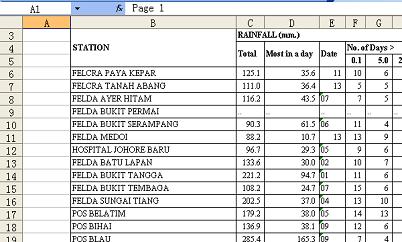

FAst extraCT (FACT) for Oracle from CoSort.You might also want to investigate third party tools to help you unload data from Oracle. It can also import data from Excel (.xls), CSV (.csv), Text (.tsv) and DSV (.dsv) formats directly into a database. The freely downloadable Oracle SQL Developer application is capable of exporting data from Oracle tables in numerous formats, like Excel, SQL insert statements, SQL loader format, HTML, XML, PDF, TEXT, Fixed text, etc. Example: declare fp utl_file.file_type įp := utl_file.fopen('c:\oradata','tab1.txt','w') PL/SQL's UTL_FILE package can also be used to unload data. You can also use the "set colsep" command if you don't want to put the commas in by hand. You can also enclose the column that contains the comma between ". Warning : If your data contains a comma, choose another separator that is not in the data. Set echo off newpage 0 space 0 pagesize 0 feed off head off trimspool on This example spools out a CSV (comma separated values) file that can be imported into MS-Excel: You can use SQL*Plus to select and format your data and then spool it to a file. Oracle does not supply any data unload utilities. Is there a SQL*Unloader to download data to a flat file? The trick is to specify "*" as the name of the data file, and use BEGINDATA to start the data section in the control file: load dataĪnother Sample control file with in-line data formatted as fix length records. Optionally, you can work with tabulation delimited files by using one of the following syntaxes: fields terminated by "\t"Īdditionally, if your file was in Unicode, you could make the following addition. The mydata.csv file may look like this: 10001,"Scott Tiger", 1000, 40

This sample control file (loader.ctl) will load an external data file containing delimited data: load dataįields terminated by "," optionally enclosed by '"' Invoke the utility without arguments to get a list of available parameters. Sqlldr (sqlload on some platforms) utility. One can load data into an Oracle database by using the


 0 kommentar(er)
0 kommentar(er)
